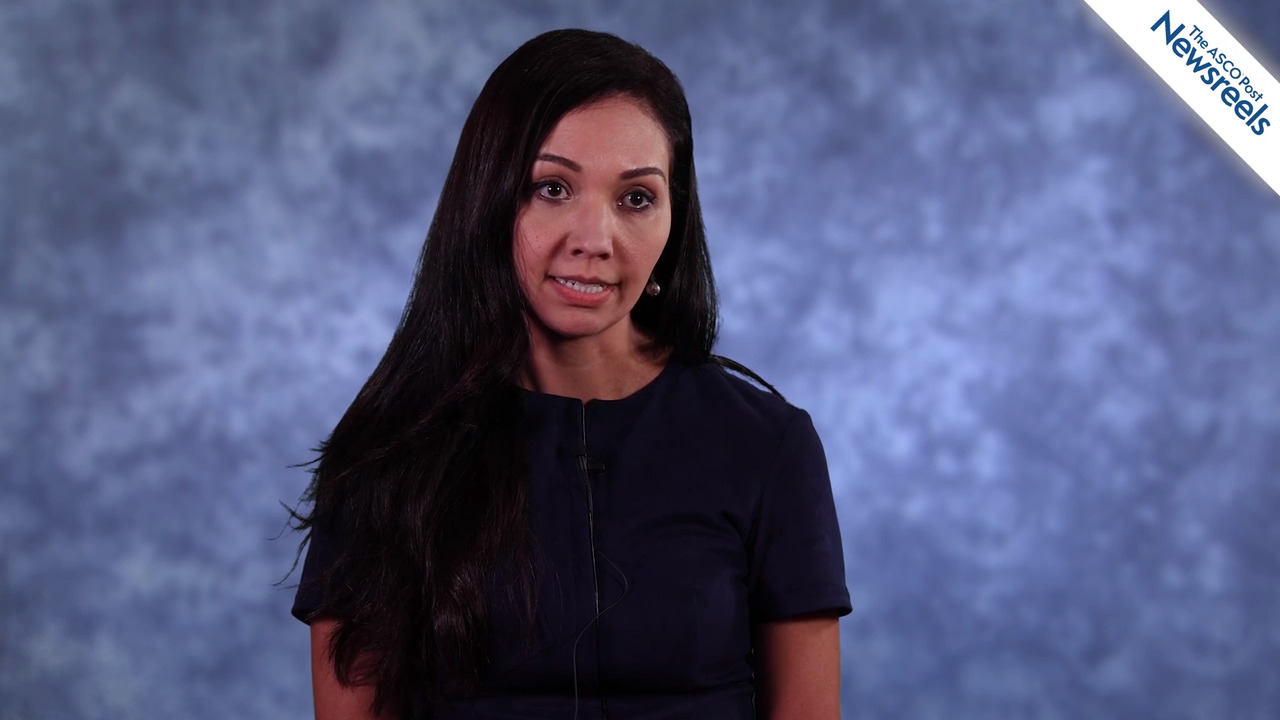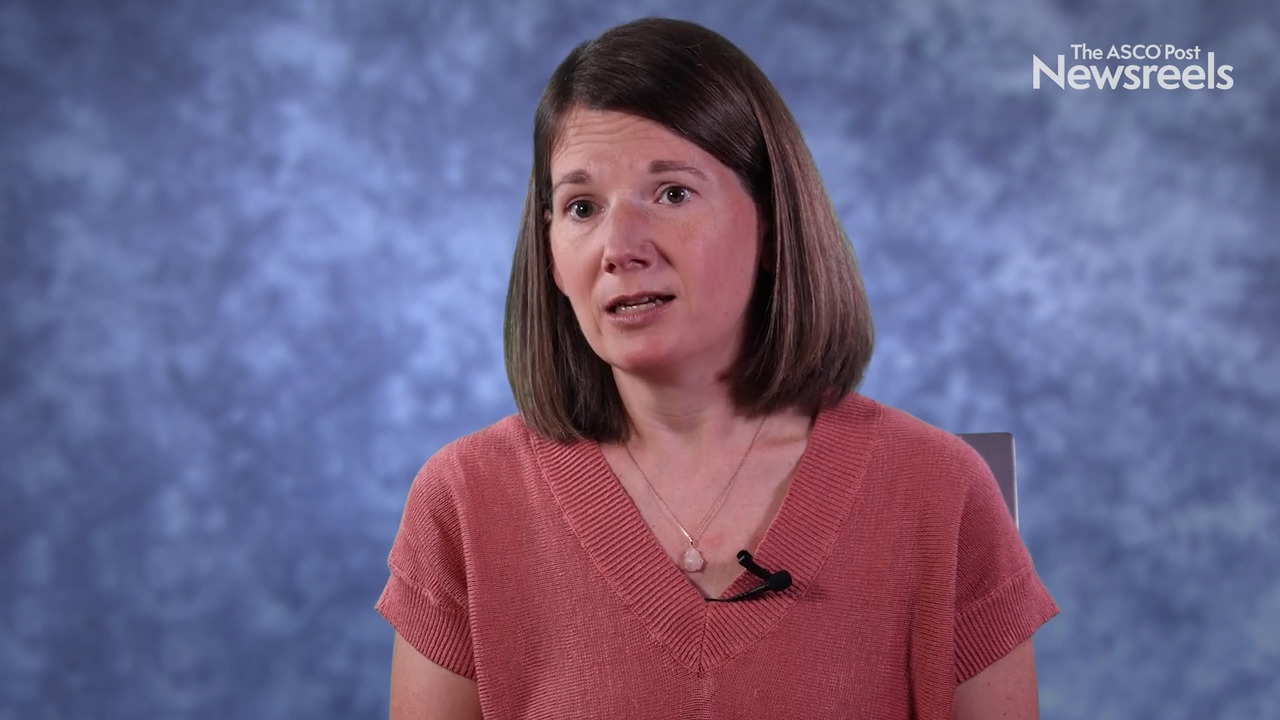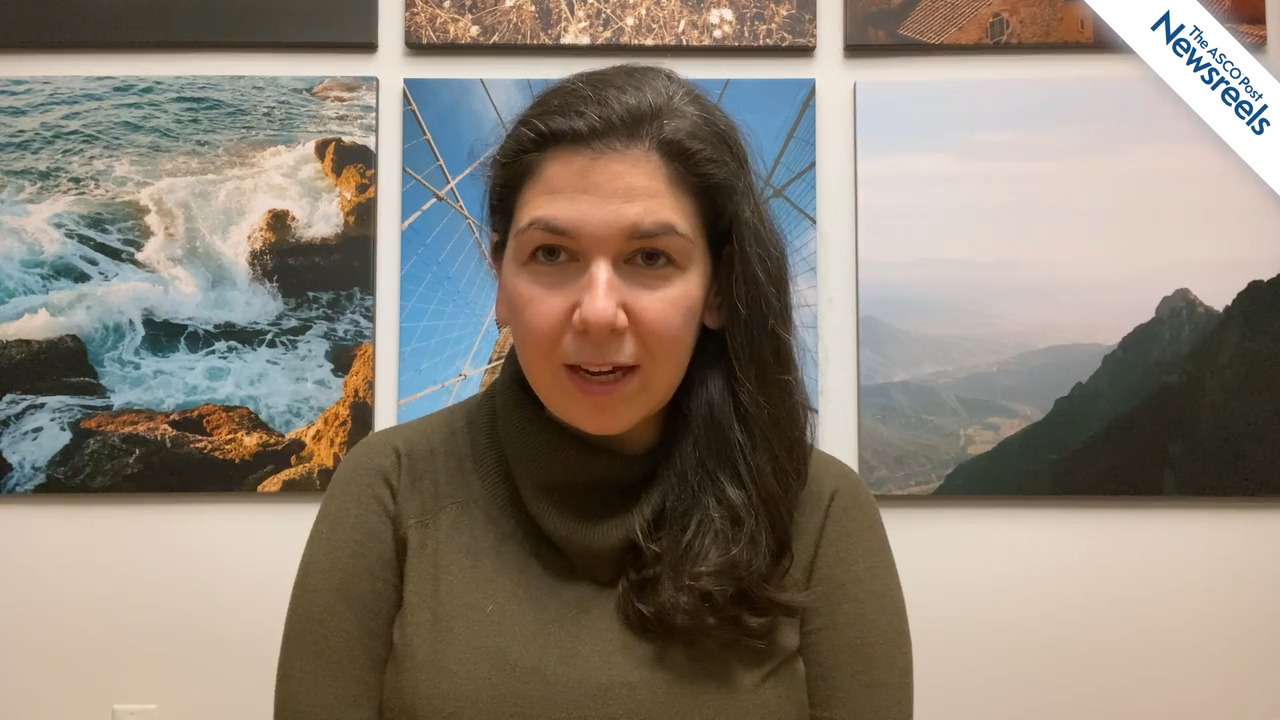Benjamin W. Corn, MD, on Integrating Hope Into Clinical Oncology
2021 ASCO Quality Care Symposium
Benjamin W. Corn, MD, of Shaare Zedek Medical Center in Jerusalem, discusses hope: what it takes for hope to thrive; how he and his colleagues are helping patients and providers become more hopeful through workshops; and his collaboration with the Southwest Oncology Group to aid patients, through hopefulness, to better adhere to treatment regimens.
The ASCO Post Staff
Leticia Nogueira, PhD, MPH, of the American Cancer Society, discusses results from a study designed to evaluate the impact of Medicaid expansion under the Affordable Care Act (ACA). In Medicaid-expansion states, mortality among patients after lung cancer surgery decreased from 2.4% before the ACA to 0.8% after the ACA, with no significant change in non–Medicaid-expansion states.
The ASCO Post Staff
Aakash Desai, MPH, MD, of the Mayo Clinic in Rochester, Minnesota, talks about the urgent need for drug pricing reform, given the average expenditure of Medicare part D, and the ultimate out-of-pocket costs for patients with cancer. The promise of precision oncology will fail, says Dr. Desai, if we fail to bring the right drugs to the right patient at the right time, with the right price.
The ASCO Post Staff
Divya Gupta, MD, of the Stanford Cancer Center, discusses an intervention utilizing a computer model and lay care coaches to improve advance care planning conversations with patients who have metastatic cancer. The study, Dr. Gupta reports, showed a trend toward less intensive care for patients at the end of life.
The ASCO Post Staff
Katherine E. Reeder-Hayes, MD, MBA, of the University of North Carolina at Chapel Hill, discusses the timeliness of breast cancer care for Black women compared with non-Black women in North Carolina. Her data showed that greater geographic variation exists in the timeliness of breast cancer care for Black women, with regions surrounding larger urban centers having the largest disparities.
The ASCO Post Staff
Morgan R.L. Lichtenstein, MD, of Columbia University Medical Center, discusses a single-center prospective study examining the complex relationship between time to oral oncolytic receipt and clinical or process-related factors, such as prior authorization, diagnosis, and insurance type.





